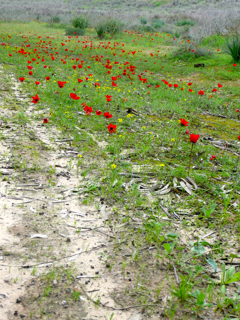Once I sat on the steps by agate at David's Tower, I placed my two heavy
baskets at my side. A group of tourists was standing around their guide and I
became their target marker. "You see that man with the baskets? Just right
of his head there's an arch from the Roman period. Just right of his
head." "But he's moving, he's moving!"
I said to myself: redemption will
come only if their guide tells them,
"You see that arch from the Roman period? It's not important: but
next to it, left and down a bit, there sits a man who's bought fruit and
vegetables for his family."
--- Yehuda Amichai, “Tourists”
There’s a crack in everything, that’s how
the light gets in. – Leonard Cohen
She was also the archetypal Zionist pioneer, singing Hebrew medleys, and dancing the Hora in bristly fields.
I was born in
Israel: a place where history nudges modernity, where change springs from
continuity, where taxi drivers discuss politics, poetry, and Spinoza, where the
clerk at the corner store helping you pick a bottle of wine for the dinner
party you’re headed to will tell you, rather rudely, that you don’t have to spring
for wine AND chocolates (“what are you crazy?”), where your neighborhood bakery
hands your kids rogalach (pastries) on
Friday mornings,
where every two people hold – and voice – three opinions, where the collective and the individual are inextricably entwined. I was born in a place where community runs deep, emotions run high, and social criticism runs rampant.
where every two people hold – and voice – three opinions, where the collective and the individual are inextricably entwined. I was born in a place where community runs deep, emotions run high, and social criticism runs rampant.
Israel’s eminent
authors, poets, and artists, are left of center. They engage and wrestle with
their country’s policies and socio-cultural dynamics from a place of unrelenting
commitment. They will sing to their country until she will open her eyes.
I was born in
Israel. But I have spent most of my life in North America.
On a saturday night in August 2011, I stood in Tel Aviv, among throngs of Israelis, young and old, Ashkenazi and Sephardic, right and left, in an impassioned demonstration for social justice. Pop singer Karin El Al began singing Ein Li Eretz Acheret (“I have no other country”), and the brackish tears welled in my eyes. The pinch I felt in my heart was visceral. BUT I DO have another country, the thought encroached on me, as I was singing along with hundreds of thousands Israelis, on the eve of my impending departure… It was a realization that was mingled with sorrow and regret, if also with some measure of hope and possibility.
Like Donne’s compass, my legs are rarely aligned;
one is rooted while the other rotates. This allows me to keep moving, to
discover new spaces, novel configurations.
As a mother of two young ‘uns, I am frequently running, moving, doing. But the moments of stillness are those that are oftentimes the most far-reaching. Like Yehuda Amichai’s man who sits with his basket of fruit and vegetables by the historic arch from the Roman period, and reflects on his family, I turn to the moments that encompass space and time, the moments in which the mundane is elevated.
I read Hebrew books. We sing Hebrew songs.


















